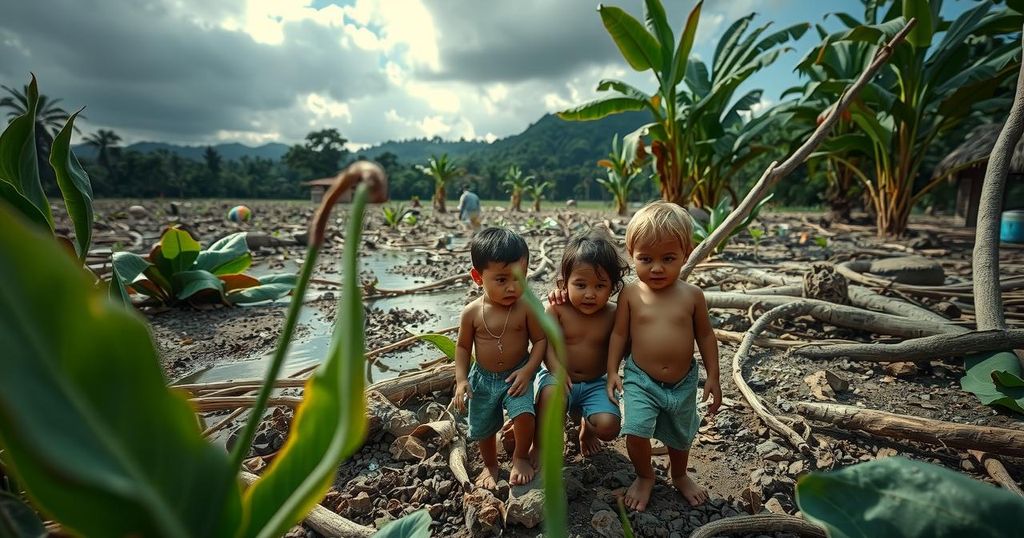UN Reports Over 420,000 Children Affected by Drought in the Amazon

UNICEF reports that over 420,000 children are affected by severe drought in the Amazon, caused by ongoing climate challenges and exacerbated by the El Niño phenomenon. The UN agency urges increased climate financing to address the situation, emphasizing the dire consequences for children’s health, education, and wellbeing.
According to the United Nations, over 420,000 children in the Amazon basin are suffering from significant water scarcity and drought across Brazil, Colombia, and Peru. This record drought, which has persisted since last year, has severely impacted Indigenous and local communities that rely on waterways for essential services. UNICEF highlights the urgent need for climate financing aimed specifically at children, particularly as the health of the Amazon rainforest directly influences the well-being of populations across the region. UNICEF Executive Director Catherine Russell emphasized the critical situation, stating that these conditions have deprived many children of adequate food, water, healthcare, and education. The drought has heightening food insecurity, increasing risks of malnutrition among children and facilitating the spread of infectious diseases due to limited access to safe drinking water. In Brazil alone, over 1,700 schools and 760 medical facilities have become unusable due to lowered river levels, while Colombia and Peru have also faced significant educational disruptions due to food and water shortages. UNICEF is urgently requesting $10 million to assist the affected populations by providing essential resources such as safe drinking water and medical aid. Influential weather observation entities, including NASA and the European Union’s Copernicus Climate Change Service, attribute the ongoing drought to the 2023-2024 El Niño phenomenon, exacerbated by the overarching climate crisis. Despite these troubling developments, Brazilian Environment Minister Marina Silva noted a significant reduction in deforestation rates within Brazil’s Amazon, which fell by approximately 30 percent over the past year. This reflects a governmental commitment to confronting climate change more effectively following renewed enforcement of environmental protections initiated by President Luiz Inácio Lula da Silva. In a parallel development, Colombia reported a historic 36 percent decrease in deforestation for 2023, showcasing that concerted efforts can yield positive environmental results even amid adversity.
The article discusses the severe impact of drought conditions in the Amazon basin, with a specific focus on the plight of over 420,000 children affected by water scarcity. This situation highlights the intricate relationship between climate change, environmental health, and human welfare. The urgency communicated by UNICEF calls attention to the need for increased climate financing and targeted assistance for vulnerable populations, particularly children, in light of the ongoing climate crisis exacerbated by phenomena such as El Niño.
In conclusion, the alarming drought in the Amazon basin significantly disrupts the lives of children and communities in Brazil, Colombia, and Peru. The United Nations and UNICEF are advocating for immediate and increased climate financing to address the dire needs of the affected populations. The article underscores the importance of mitigating the impacts of climate change while reinforcing the need for sustained environmental protections to safeguard both ecosystems and future generations.
Original Source: www.aljazeera.com







